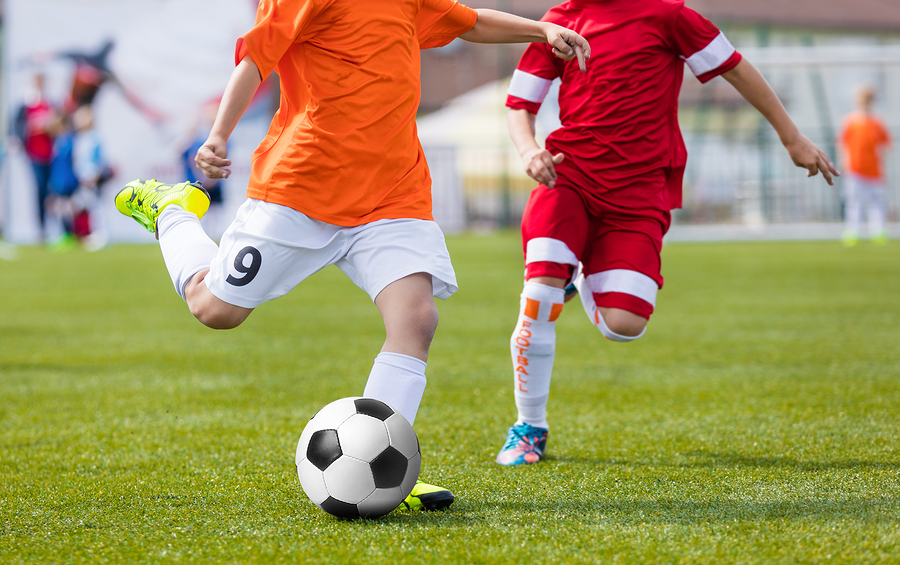
What Parents Should Know About Youth Sports and Concussions
You’ve probably heard a lot in the news lately about the prevalence of Chronic Traumatic Encephalopathy (CTE) in football players. Athletes and others with a history of repetitive brain trauma, such as concussions, develop this degenerative brain disease. As a result of recent studies, some parents have begun to turn their children away from high-impact sports such as football. So what do Florida parents really need to know about youth concussions, sports, and the future consequences of brain damage their children can suffer? Furthermore, if your child suffers a traumatic brain injury as the result of a sporting accident, how can you recover compensation for your injuries?
Traumatic Brain Injuries and Children
The term traumatic brain injury might seem terrifying in reference to your children, and even a minor concussion is medically considered a traumatic brain injury. Traumatic brain injuries generally fall into three categories: mild, moderate, and severe. These categories are fluid as opposed to static in nature, so your child may have symptoms that fall into multiple categories. Generally, however, your child’s brain injury is considered mild if the symptoms fall into only the following categories:
- Brief loss of consciousness (a few seconds or minutes)
- Mild confusion
- Normal testing and brain scans after an accident
Although most children recover from mild traumatic brain injuries without the need for intense treatments, you must carefully monitor your child’s symptoms and avoid further head injuries, because past brain cell damage may make future injuries more severe. Many young athletes, therefore, are banned or suspended from participating in certain sports after mild concussions.
Doctors diagnose moderate traumatic brain injuries if (1) the loss of consciousness lasts as long as a few hours, (2) you are dazed and confused for a few days or weeks, and (3) you experience physical, emotional, or cognitive dysfunctions, including changes in behavior. Examples of long-term symptoms of mild traumatic brain injuries include:
- Headaches
- Suicidal thoughts
- Aggressive behavior
- Visual impairment
- Seizures
- Memory loss
Youth sports do not often see severe traumatic brain injuries—they typically take place after a severe, crushing blow to the head or an object penetrates the brain. Horseback riding, figure skating, dirt biking, and gymnastics injuries, however, may result in severe traumatic brain injuries.
Diagnosing Traumatic Brain Injuries in Children
Traumatic brain injuries are actually the leading cause of death and disabilities in children. Call your doctor if you notice any of the following persistent symptoms in your child:
- Changed eating habits
- Inconsolability
- Inability to pay attention
- Depression
- Lost interest in favorite activities
- Drastic changes in sleeping habits
When a child develops an inability to concentrate during vital educational years, many parents and medical professionals may assume that the child suffers from attention deficit disorder. Before accepting such a diagnosis, however, ask yourself (and your doctor) if a traumatic event at school or during activity time may have resulted in a brain injury. Young children are especially susceptible to severe traumatic brain injuries because of their still-developing brain tissue. However, parents may not realize that their child has suffered such an injury, especially if it resulted from an unseen fall or sports injury at school.
Liability for Youth Sports Injuries
If your child suffered an injury while participating in youth level sports, whether you can hold someone liable for that injury depends on the facts of the case. For example, if you participate in high-impact sports, you often assume the risk of injuries associated with those sports. If, however, your child suffered an injury while participating in a youth sport that should not produce concussions and brain injuries, then you must determine whether the negligence of a caretaker caused or worsened the injury.
Florida courts have held that, during school hours, teachers qualify as caregivers, and as such, must monitor children to ensure they are safe and well during playtime. Teachers are not permitted to stand by while a child is injured or abused in their presence. They must act. If they do not, they can face legal action for negligence. This principle can often extend to coaches and activity monitors who should ensure your child’s safety during school hours. If they negligently failed to perform their duties, you may recover compensation for your child’s injuries sustained at school. Furthermore, if activity in a private or public youth sports league outside of school hours injured your child, you may still have a case for negligence against a coach, director, or even another child if the protections and rules in place did not sufficiently protect your child, considering age and abilities. Even with sufficient rules, if the coach did not pay attention or enforce the rules set to protect your child, then speak with a personal injury attorney about your rights to compensation.
Contact a Tampa Bay Personal Injury and Child Protection Attorney Today
If you know or believe that your child suffered a head injury during a youth-designed sporting activity in the greater Tampa Bay area, you may have a case against multiple parties. However, this depends on how and where your child suffered the injury. The facts of the case will determine whether you can recover compensation for your medical bills, your child’s pain and suffering, or future needs. If activities in a school or sports league injured your child, contact the Dolman Law Group immediately. Their trained personal injury and child protection attorneys can help answer your questions and fight for you and your child’s right to compensation. Call them today at (727) 451-6900 or write them online for a free, no-risk consultation.
Dolman Law Group
800 North Belcher Road
Clearwater, FL 33756
727-451-6900
https://www.dolmanlaw.com/florida-brain-injury-lawyer/
Google+




